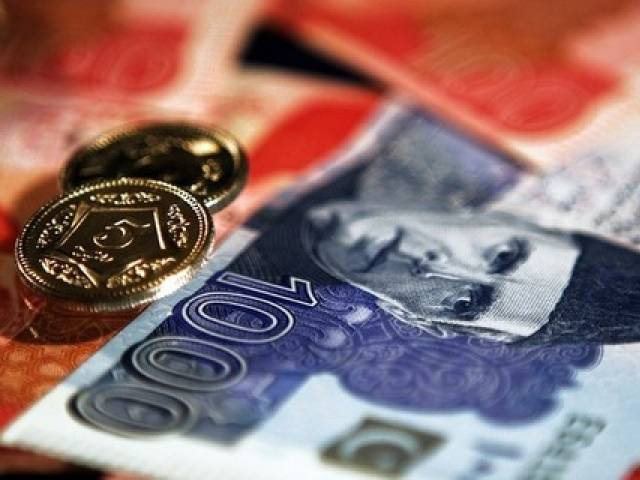All-Share Islamic Index gets 41 new companies
Twenty-six removed because they did not qualify as Shariah-compliant stocks anymore

Twenty-six removed because they did not qualify as Shariah-compliant stocks anymore. PHOTO: BLOOMBERG
The All-Share Islamic Index, which is developed by the PSX and Meezan Bank, gauges the performance of the Shariah-compliant segment of the national share market.
As many as 26 companies have also been removed from the index because they did not qualify as Shariah-compliant stocks any more.
Job opportunities for women in Islamic banks
The index will consist of 238 companies on April 11 and thus include all listed companies that currently meet the Shariah screening criteria for the All-Share Islamic Index.

The All-Share Islamic Index reflects the performance of Shariah-compliant shares in their entirety because a separate index - KMI-30 Index - is already in place to gauge the performance of the 30 most liquid Islamic stocks.
The day-to-day maintenance of the index is carried out within the Broad Index Policy Framework set by the PSX and Al Meezan Investments. It is calculated and disseminated to market participants, regulators and trading screens on a real-time basis. Its re-composition takes place on a semi-annual basis.
Major stocks that are going to be part of the All-Share Islamic Index include Byco Petroleum, DG Khan Cement, Mughal Iron and Steel, Nishat Mills and Pakistan Refinery.
Major outgoing companies include Al Ghazi Tractors, Bestway Cement, Engro Polymer, Indus Motor, Kot Addu Power and PSO.
As part of the selection process, each company’s financial reports are reviewed by research analysts of Al Meezan Investments. They assess a company based on two broad categories, namely technical filters and Shariah-screening criteria.
Promoting Islamic banking: Centres of Excellence in educational institutions
There are six technical filters, such as the company should not be on the defaulters’ counter and that its securities should be available in the Central Depository System.
Shariah-screening also consists of six criteria. First and foremost of these criteria is that the core business of the company should not violate any principle of Shariah. The second condition states that the company’s interest-bearing debt to assets ratio must be less than 37%.
A company is also required to have its ratio of non-compliant investments to total assets less than 33% in order to be part of the All Shares Islamic Index. Similarly, the ratio of non-compliant income to total revenue should also be less than 5%.
Rules also stipulate that the ratio of illiquid assets to total assets must be at least 25% while market price per share should also be at least equal to, or greater than, the net liquid assets per share.
Published in The Express Tribune, April 8th, 2016.
Like Business on Facebook, follow @TribuneBiz on Twitter to stay informed and join in the conversation.



1733130350-0/Untitled-design-(76)1733130350-0-208x130.webp)















COMMENTS
Comments are moderated and generally will be posted if they are on-topic and not abusive.
For more information, please see our Comments FAQ